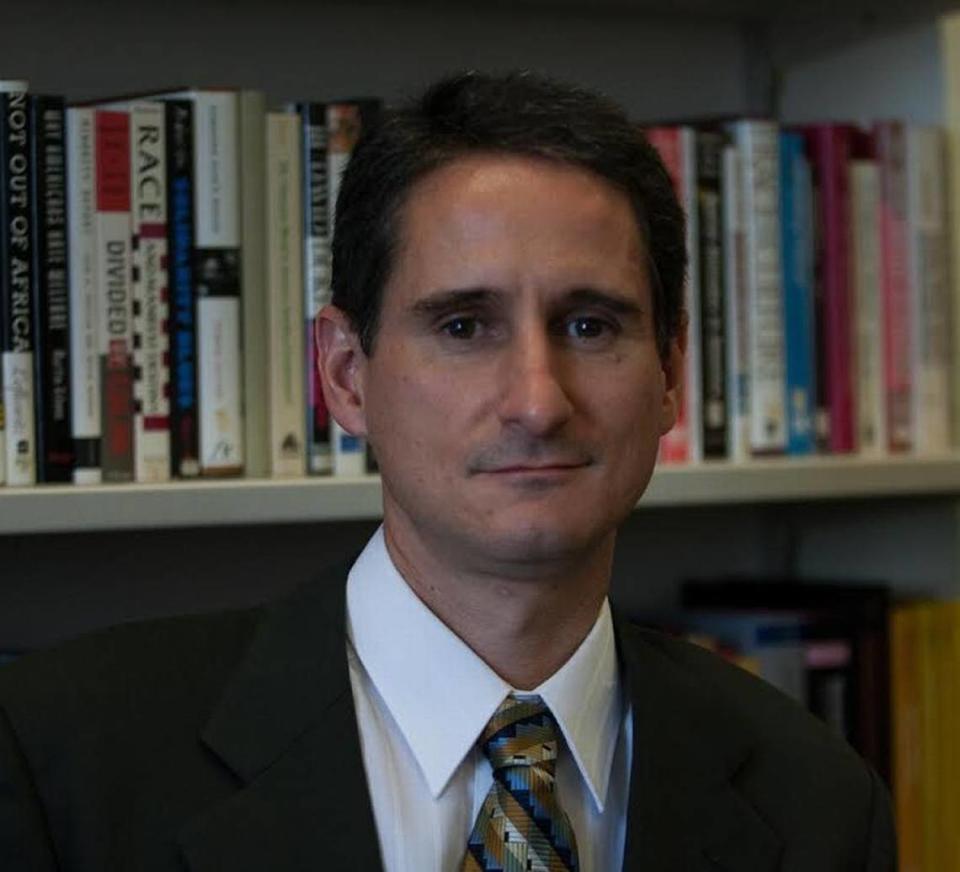Barbs and BBQ: Fancy Farm brings out the old-time political romantic in all of us. | Opinion
On Aug. 5, political junkies will converge on Western Kentucky for what might sound like the strangest of reasons: to attend a fundraiser organized by St. Jerome Catholic Church.
Saturday’s extravaganza — known these days simply as Fancy Farm, after the Graves County town where it occurs — gives Kentuckians a unique opportunity to hear from top-tier politicians while mingling with the crowds at the world’s largest picnic. Speaking at Fancy Farm has become a rite of passage for high-profile candidates, and this year, the full slate of Democrats and Republicans pursuing statewide office has agreed to attend.
Now, a confession: Although I’m sometimes called an “expert” on Kentucky politics, and I’ve worked as an elections specialist here for a quarter century, I’ve never bothered to attend a Fancy Farm picnic. Yet I’ve always felt guilty about skipping the Commonwealth’s most-sacred campaign ritual.
Why? Not because I think Fancy Farm will help me understand Kentucky’s politicians. I could learn more about those candidates, and learn it more efficiently, with a Web search. Even if a candidate says something new this weekend, likely the speech will show up on YouTube. The Kentucky politics specialist in me says: Skip Fancy Farm.
Nor do I think going to Fancy Farm would offer new insights about how this year’s elections will turn out. The event reportedly attracts more than 10,000 people each year — which might sound huge when considering the quantity of barbecue sauce needed to keep those masses fed, but that’s approximately 1 percent of November’s likely electorate. In my lifetime, only one Kentucky gubernatorial election has been decided by so few votes.
Anyway, only a fraction of Fancy Farm’s audience will be up for grabs. Most political junkies — including the campaign workers and activists who’ll be mixing with the locals — have strong loyalties that no stump speech can sway. So unless one of the candidates makes a truly boneheaded error while at the podium, the sort that goes viral, these performances won’t matter electorally. The election specialist in me says I can stay home.
What about me as a citizen? On the surface, Fancy Farm sounds inspiring: Candidates for the state’s highest offices will put their comfort zones (and their consulting teams) behind them, stand before the people whose votes they need, and appeal for their informed support. Representation in action!
Except it would be ridiculous to expect Fancy Farm to showcase the majesty of the American republic. It is, after all, a giant picnic. Voters will bring family members with no interest in the speeches, who will add to the distractions created by friends, food, and festival. Activists will shout back at the speakers, drowning out not only their jokes but also any serious matters they bring up. An idealistic citizen, hoping to see the democracy of civics textbooks, likely should sit Fancy Farm out.
So why go? It’s the romantic in me who plans to drive out there this weekend, the guy who thinks Fancy Farm is the way politics ought to work.
Every election year, idealists moan about low voter turnout. Too few people care about politics, they complain. Too few citizens participate. And the solution usually offered by reformers is to keep lowering the cost of voting.
If citizens won’t register to vote at a clerk’s office, let’s try letting them register elsewhere, or maybe let them skip registering altogether.
If citizens won’t vote in their neighborhood on Election Day, let’s try letting them vote lots of different ways on lots of different days.
It’s the mentality of a salesperson trying to unload a bad product no one wants: Keep yanking down the price. Put civic engagement in the bargain bin.
But Fancy Farm hearkens back to an age when voters participated at dramatically higher rates — partly because politics was fun. Citizens looked forward to campaign season because it offered a social experience of the sort humans crave. Politicking came with songs, costumes, parades … and barbecue sauce. It was less like today’s political parties, and more like a tailgate party.
Modern voters still respond to that sort of carnival atmosphere, on the rare occasion they’re offered it. In 2006, a team of political scientists divided up precincts in 14 communities around the country and scheduled Election Day festivals in some voting locations, to see whether music, food, and games could draw voters to the polls. Participation jumped in those communities, at a lower cost than the tactics campaigns use to get out the vote.
Fancy Farm might not be the wave of the future. More likely, we’ll soon be allowed to discharge all of our civic duties through smartphones, a private and lonely process. But just once, the romantic in me hopes to witness Fancy Farm before it’s replaced by the bad product that almost no one wants.

Stephen Voss is a political scientist specializing in voting behavior and quantitative analysis at the University of Kentucky.

